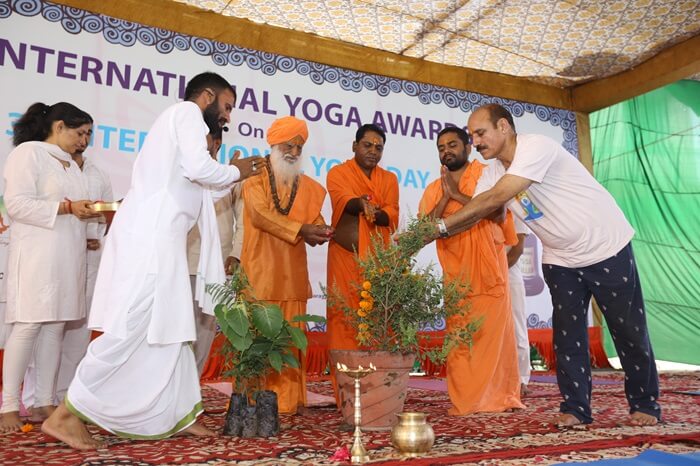Is It Hard to Be a Yoga Teacher?

It is enjoyable to be a student and focus solely on yourself while following a teacher’s instructions. But does the experience look the same from the other side? Certainly not. As a teacher, whether in yoga or another field, you are responsible for an entire class of students, be they children or adults.
Teachers may find it challenging to claim that teaching is easy, but they find it fulfilling to share their knowledge with students. Teaching yoga is no different—you must continually evolve and maintain a beginner’s mindset, always striving for improvement.
To gain an in-depth understanding of effective teaching methodologies and practical experience to enhance your teaching quality, consider joining our 200-hour Yoga Teacher Training in Kerala, a renowned program offering an ideal learning environment for aspiring yoga teachers.
Now, let’s ease some of the pressure of your daily responsibilities as a yoga teacher.
11 Effective Yoga Teaching Tips
With these effective tips, your yoga teaching can become as effortless as a vinyasa flow!
- Identify Your Purpose
Defining your purpose is the crucial first step in fueling your enthusiasm to stay on your chosen path.
Before starting your career as a yoga teacher, ask yourself:
- Why do I want to teach yoga?
- What drives my motivation?
- Am I committed to serving others through yoga?
- What aspects of yoga do I admire?
Answering these questions will help you build a clear vision and guide you through moments of doubt or challenges.
Keep Practicing
For any yoga teacher or instructor, maintaining personal practice is as vital as teaching. Regular self-regulated yoga sessions help keep your muscles engaged and your strength and flexibility intact. Remember, “You cannot pour from an empty cup,” so ensure you keep replenishing your own practice.
Know the Different Ways of Teaching
Yoga is a unique art form, and there is no one-size-fits-all approach. Each teacher has a distinct style. Reflect on your own learning experiences and how they differ from your teachers. Embrace the diverse teaching methods you encounter and incorporate them into your practice.
Expand your abilities by enrolling in our Yoga Retreat Program in Kerala!
Do Not Compare Yourself With Others
It’s easy to compare your progress to others and feel disheartened. Instead, focus on celebrating your own achievements and growth. Remember, everyone progresses at their own pace, and those who have achieved success were once at your level.
Grounding
Grounding reconnects and realigns your energies with the Earth, promoting well-being. Practice grounding through asanas like Mountain Pose and Child’s Pose, or through meditation and pranayama. Techniques include earthing—placing bare feet on the ground—and visualizing roots growing from your feet into the Earth.
Grounding before and after teaching will help maintain equilibrium between your body and mind.
Maintain and Protect Your Energy
Teaching yoga can lead to absorbing others’ energies, which can be draining. To protect your energy, consider asking students to position their heads towards you and their feet away during Shavasana. This will prevent their energy from affecting your own.
Maintain a Schedule
Structure a schedule that allows time for breaks and activities you enjoy. Whether it’s spending time with loved ones, meditating, or enjoying hobbies, a balanced schedule helps refresh your mind and body. Consider joining our Ayurveda Retreat in Kerala for a transformative rejuvenation experience.
Expand Your Income
To achieve financial stability and greater freedom, consider diversifying your income sources. Options include:
- Starting a Yoga Podcast
- Creating a Yoga YouTube Channel
- Launching a Yoga Blog and monetizing it
- Offering Private Yoga Classes
- Selling yoga-related products
These additional income streams will not only enhance your financial stability but also provide more time for self-care and training.
Yogi with a Plan
Always prepare before class to avoid appearing lost. Have a flexible plan and be ready to adapt based on your students’ needs and the class’s energy level.
Be Open to Feedback
Approach your classes with humility and openness. Be receptive to feedback from students and use it as an opportunity for growth. Engage with your students by asking questions like:
- “Did you enjoy today’s session?”
- “What did you like most about today’s class?”
- “Did you face any difficulties after yesterday’s session?”
Building a connection with your students and being open to their feedback will help you improve and evolve as a teacher.
Conclusion
Becoming a successful yoga teacher is not easy—it requires time, effort, dedication, and a genuine love for yoga. Implementing the tips above can guide you on your journey to becoming an effective and admired yoga teacher. Remember to continually work on yourself, push your boundaries, and embrace both learning and growth.
For a comprehensive and transformative experience in your yoga journey, explore our Yoga Teacher Training Programs and Yoga Retreats in Kerala.














